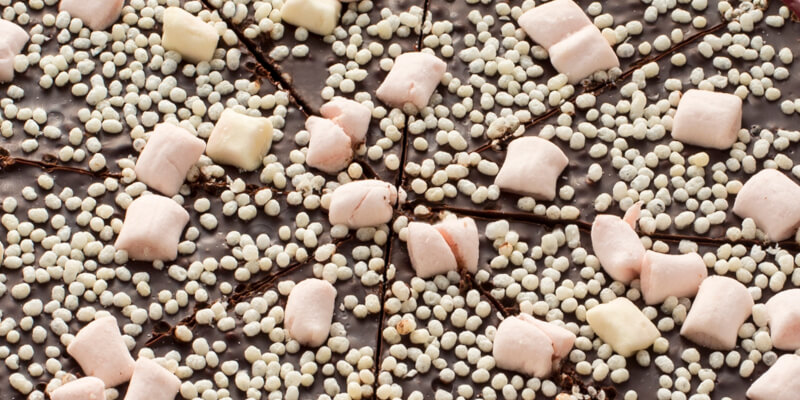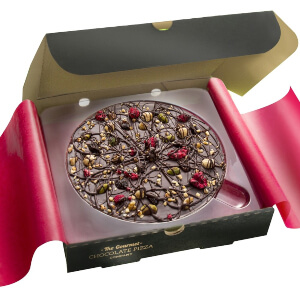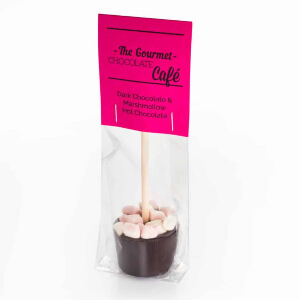
Being a vegan doesn’t mean you have to miss out on your favourite sweet treats, and with a bit of savvy shopping and clear product labelling you can easily identify which of your favourite chocolate pizzas and gifts fit in with your lifestyle choices and dietary needs.
Fortunately, with the latest figures from The Vegan Society showing that the number of vegans in the UK quadrupled between 2014 and 2018, and with 600,000 vegans being recorded in 2018, it means that our access to vegan-friendly foods has never been so easy.

Generally, this question is usually asked by non-vegans or those who are new to the vegan way of life, but the only real difference between vegan chocolate and regular chocolate is the lack of any dairy additives.
They are both made in the same way using cocoa beans, but it is the process of turning these fermented beans into the chocolate we all know and love that dictates whether the chocolate is suitable for vegans or not.
Once the cocoa beans have been suitably dried and ground into a paste or fine cocoa nibs, they are then put through a process called conching.
This is the stage where other ingredients, such as milk powder or vegan-friendly plant-based substitutes, and additives, like sugar, are added to create different flavours and types of chocolate.
Here, at The Gourmet Chocolate Pizza Company we have a selection of products that we believe are vegan-friendly including Gourmet Chocolate Pizzas and luxury Hot Chocolate Sticks.

This means that although we are not certified by any professional body to prove that our chocolates are vegan, the ingredients we use for this range do not contain any specific ingredients that should conflict with this lifestyle choice.
Although strict processes are followed to try and avoid cross-contamination where possible, we cannot guarantee 100% that our vegan-friendly products are completely free from traces generated by our other milk-based products or non-vegan ingredients, as all of our chocolate gifts are produced in the same environment.
At the moment, all of our vegan-friendly chocolates are created using our 70% cocoa mass dark chocolate, although we are looking to expand the range with a collection of 'plant-based ‘milk' chocolate gifts in 2020.
The chocolate used for this new product line is likely to be made from a blend of rice powder, inulin (a probiotic), and natural flavourings added to a cocoa liquor and sugar base.
For the toppings on our existing products, we try to ensure that a full spectrum of flavours is available to counterbalance the usual bitterness associated with dark chocolate, including vegan-friendly marshmallows (supplied by Freedom Mallows), freeze-dried raspberries, and a selection of nuts including pistachios and hazelnuts.
Even if you’re not a vegan, most of you will be familiar with the fact that vegans will avoid any products that has been derived from animals, but when you’re faced with a list of ingredients it can be tricky to identify exactly what those ingredients are.
Here, I’ve highlighted just a few common ingredients found in confectionery products to help guide you in the right direction.
Please click here to see our full vegan-friendly range of products.